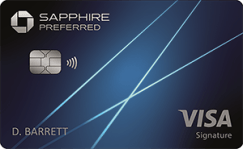At Experian, one of our priorities is consumer credit and finance education. This post may contain links and references to one or more of our partners, but we provide an objective view to help you make the best decisions. For more information, see our Editorial Policy.
In this article:
Just as it's imperative to carry automobile insurance for the car you drive every day, it's equally important to make sure the cars you rent are covered. After all, you wouldn't want to be held financially liable for dings, scratches or major damage that might occur while a rental car is in your care.
Rental agencies often try to upsell their customers with expensive rental policies, but some credit cards include rental car insurance as one of their benefits just for being a cardholder. Here's everything you need to know about how credit card car rental insurance works and how to choose the right credit card for your needs.
How Does Credit Card Car Rental Insurance Work?
Rental car insurance works a little differently from your personal insurance, and there are several types of insurance coverage that are important to understand.
Collision Damage Waiver
Your own car insurance policy, or one you purchase from a rental agency, might include things like personal accident insurance and liability coverage if you injure yourself or another person, or personal effects coverage in case your belongings are stolen.
Credit card rental car coverage, on the other hand, typically only includes a collision damage waiver, also sometimes called loss damage waiver coverage.
This type of coverage applies to damage to the rental vehicle, though credit card protection might extend to supplemental charges such as towing services and the cost of being without a car (loss of use).
If you're relying solely on your credit card's coverage, it may be a good idea to buy the car rental agency's liability coverage or consider using your personal vehicle's coverage if you're traveling within the U.S. or Canada.
Primary vs. Secondary Coverage
Most credit cards offer secondary coverage in the event of a claim, but a handful will give you primary coverage, and the difference between the two is significant.
- Primary coverage: Primary coverage means that you can make a claim directly to your credit card benefits administrator before filing a claim with your personal auto insurance carrier. That can come in handy since it means you won't have to meet your personal policy's deductible or risk your premium rising.
- Secondary coverage: If you have secondary coverage and get into an accident with your rental car, you will need to first file a claim with your primary auto insurance policy before turning to your credit card benefits. One thing to note is that secondary coverage may reimburse you for any deductibles you would owe on another insurance policy due to a rental car claim.
Credit Cards That Offer Car Rental Insurance
Here are examples of credit cards that offer car rental insurance.
Chase Sapphire Preferred® Card
Chase Sapphire Preferred® Card
APR
21.49% - 28.49% Variable
Intro APR
Rewards
Enjoy benefits such as 5x on travel purchased through Chase Ultimate Rewards®; 3x on dining, select streaming services and online groceries, 2x on all other travel purchases, 1x on all other purchases, and $50 annual Ultimate Rewards Hotel Credit, plus more.
3x Points on dining, select streaming services and online groceries
2x Points on Other Travel
1x Points on All Other Purchases
Intro Bonus
Earn 60,000 bonus points after you spend $4,000 on purchases in the first 3 months from account opening. That's $750 when you redeem through Chase Ultimate Rewards®.
Annual Fee
$95
Card Details
- Earn 60,000 bonus points after you spend $4,000 on purchases in the first 3 months from account opening. That's $750 when you redeem through Chase Ultimate Rewards®.
- Enjoy benefits such as 5x on travel purchased through Chase Ultimate Rewards®; 3x on dining, select streaming services and online groceries, 2x on all other travel purchases, 1x on all other purchases, and $50 annual Ultimate Rewards Hotel Credit, plus more.
- Get 25% more value when you redeem for airfare, hotels, car rentals and cruises through Chase Ultimate Rewards®. For example, 60,000 points are worth $750 toward travel.
- Count on Trip Cancellation/Interruption Insurance, Auto Rental Collision Damage Waiver, Lost Luggage Insurance and more.
- Get complimentary access to DashPass which unlocks $0 delivery fees and lower service fees for a minimum of one year when you activate by December 31, 2024.
- Member FDIC
The Chase Sapphire Preferred® Card offers an auto rental collision damage waiver, as well as other travel perks such as trip cancellation/interruption insurance, lost luggage insurance and more.
How to Choose the Best Credit Card for Car Rental Insurance
Before settling on a credit card to use for its car rental insurance, it's important to pin down a few details about what is and isn't covered.
- Primary versus secondary coverage: If a card offers primary coverage, you won't have to worry about filing a claim with your personal policy and risking a premium increase. That said, some cards that offer primary coverage have higher annual fees, which may not be the right fit for some people.
- Coverage details: Each credit card has its own terms and conditions for rental car coverage that might include the types of vehicles covered, maximum dollar amounts and more. If possible, look up card benefit guides for each card you're considering to get the fine print.
- Limitations and restrictions: It's just as important to know what's not protected by your card's insurance. For example, policies may not cover certain types of vehicles or won't offer coverage in select countries. You'll also want to review other potential restrictions, such as a refusal to cover damage caused by off-road driving, personal injuries or loss of personal belongings.
- Business versus personal rentals: If you travel and rent cars frequently for work, you might want to consider a business credit card, which will offer coverage for rental cars used strictly for business purposes.
As you shop around, think about your travel habits and which type of coverage would give you the most peace of mind.
How to File a Claim for Credit Card Rental Insurance
To activate your card's coverage, you'll need to use the card to pay for your rental and decline the agency's coverage. If you end up in an accident, here are some steps you'll need to take to file a claim:
- Pay for damages upfront. The rental agency will usually charge your credit card for any damages, and then it will be up to you to file a claim with your card issuer's benefits administrator to get reimbursed. Don't panic. If you are within your card's coverage conditions and able to provide all necessary documentation, chances are you will be reimbursed in a timely manner.
- Keep records. As with any travel arrangements, it's a good idea to keep all receipts and records associated with your rental, including anything that shows you paid for it with your credit card, as well as damage claims made by the agency. You will need to submit these to your card's benefits administrator. You may also need to provide photographs of the damage and a police report, if obtainable.
- File your claim in time. Many credit card rental car policies require you to report damage or theft to the vehicle directly to the benefits administrator immediately and then to follow up within a certain time frame—usually around 45 to 90 days—to file the claim itself. The benefits administrator might then ask for follow-up documentation, which you will also need to return within whatever time frame they specify.
It's important to know what type of coverage your credit card offers and just how much it will protect you. Otherwise, you could end up paying more than you think. If you don't know how to contact your benefits administrator, check your card's benefits guide or call the number on the back of your card.
Focus on More Than Just Rental Car Coverage
While having a credit card with good rental car coverage is good, it's important to compare credit cards based on all of their benefits and rewards instead of focusing on just one. With Experian CreditMatch™, you can compare credit cards based on your credit file, making it easier to view cards side by side and choose the best one for you based on the full value it provides. If you're looking for comprehensive auto insurance for your personal vehicle, use Experian's auto insurance comparison tool to shop around and make sure you get the best rate available.



